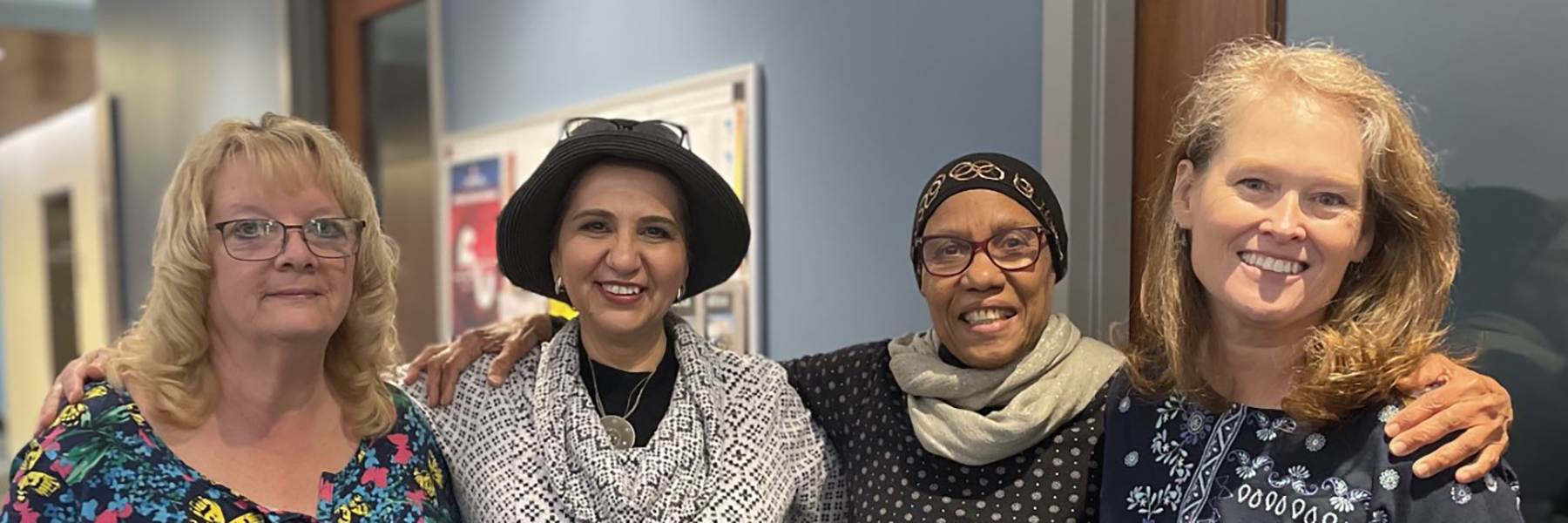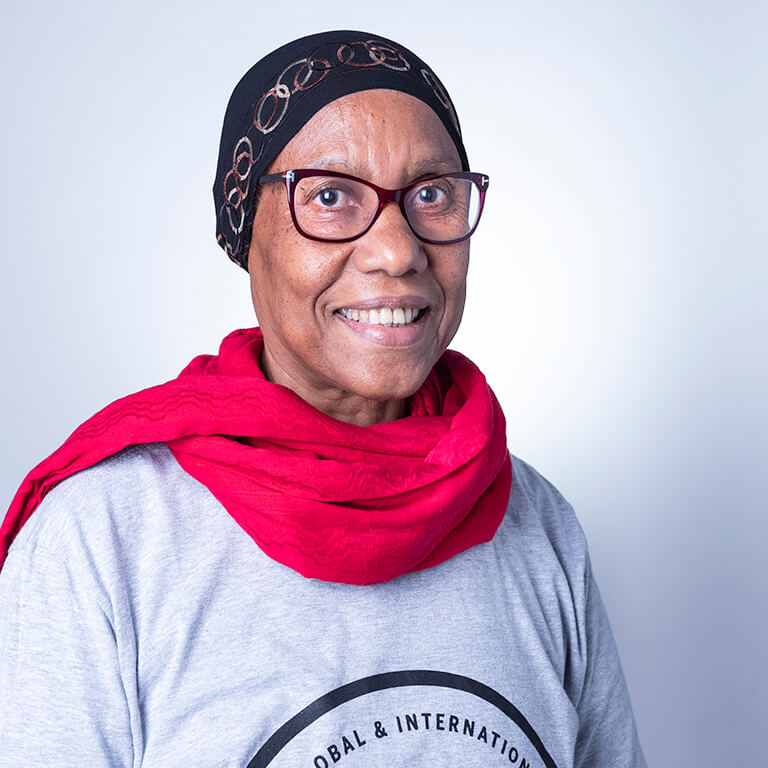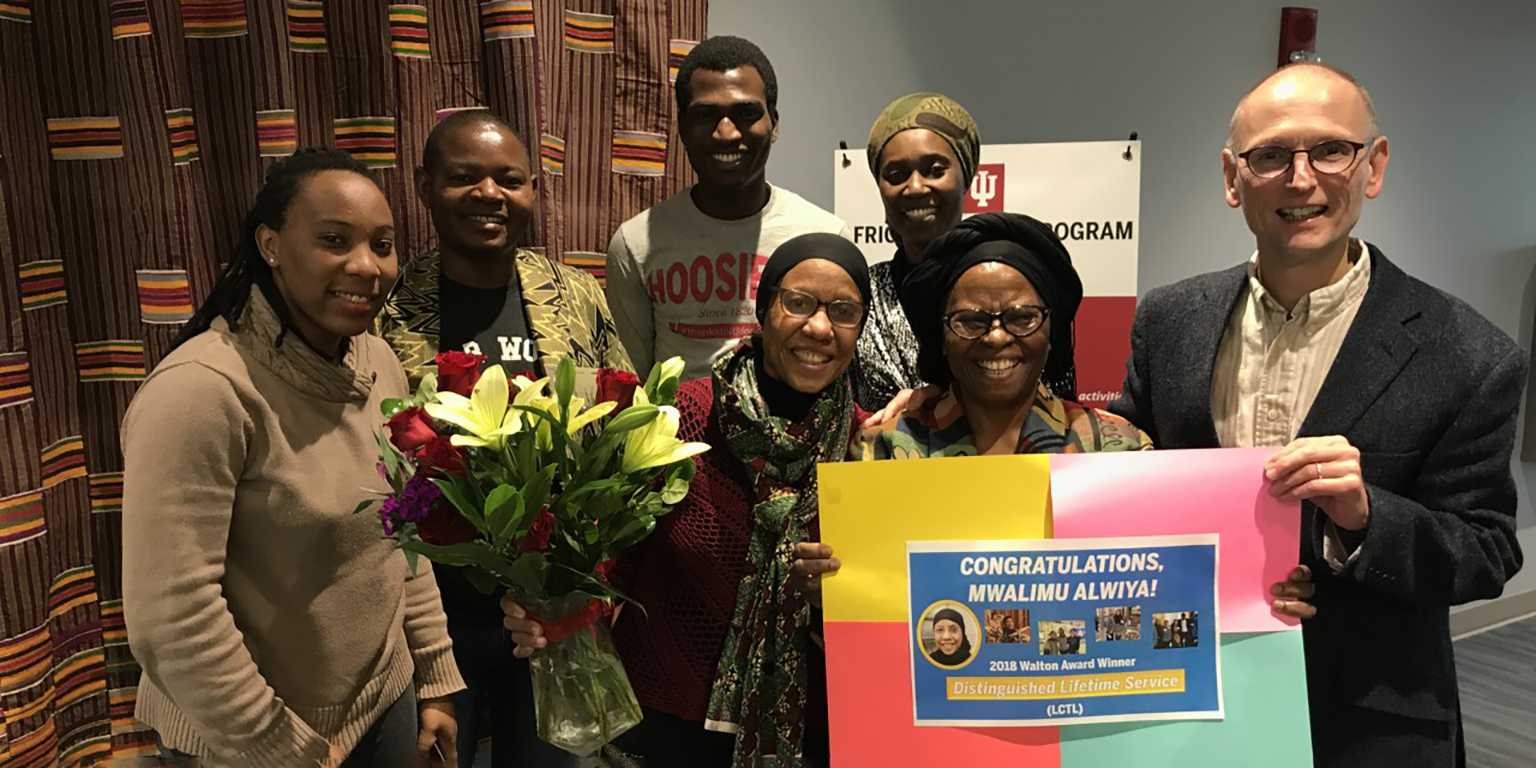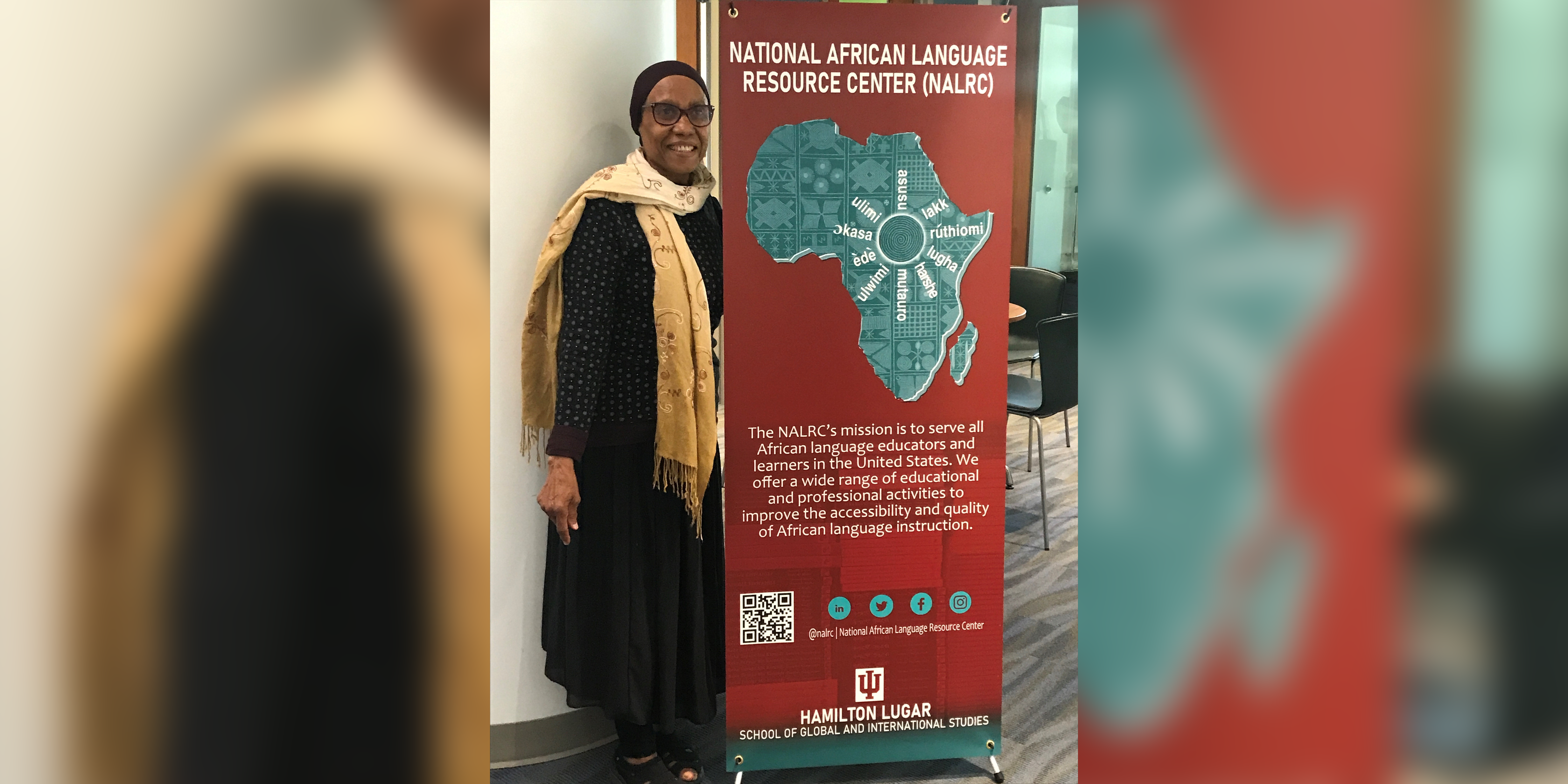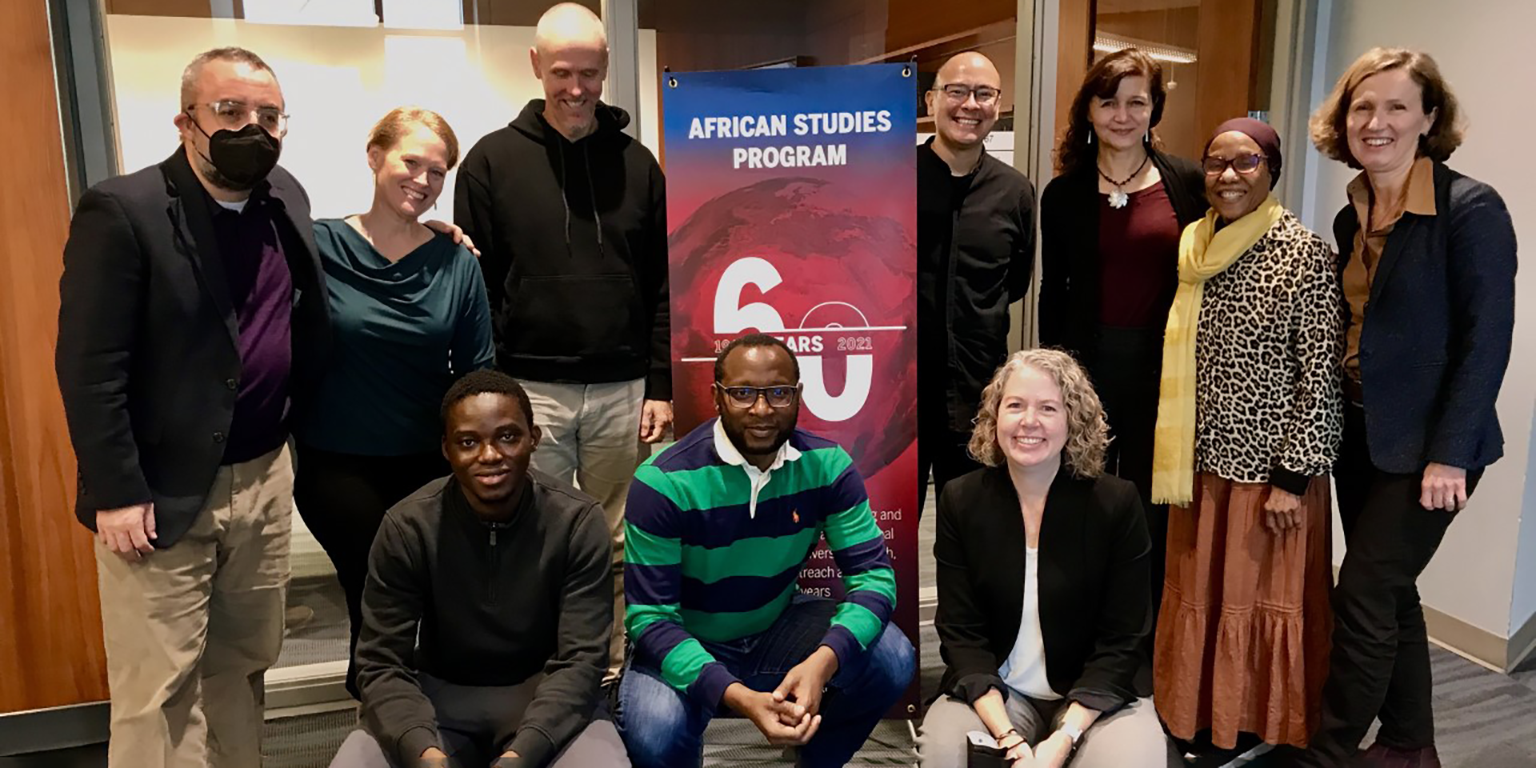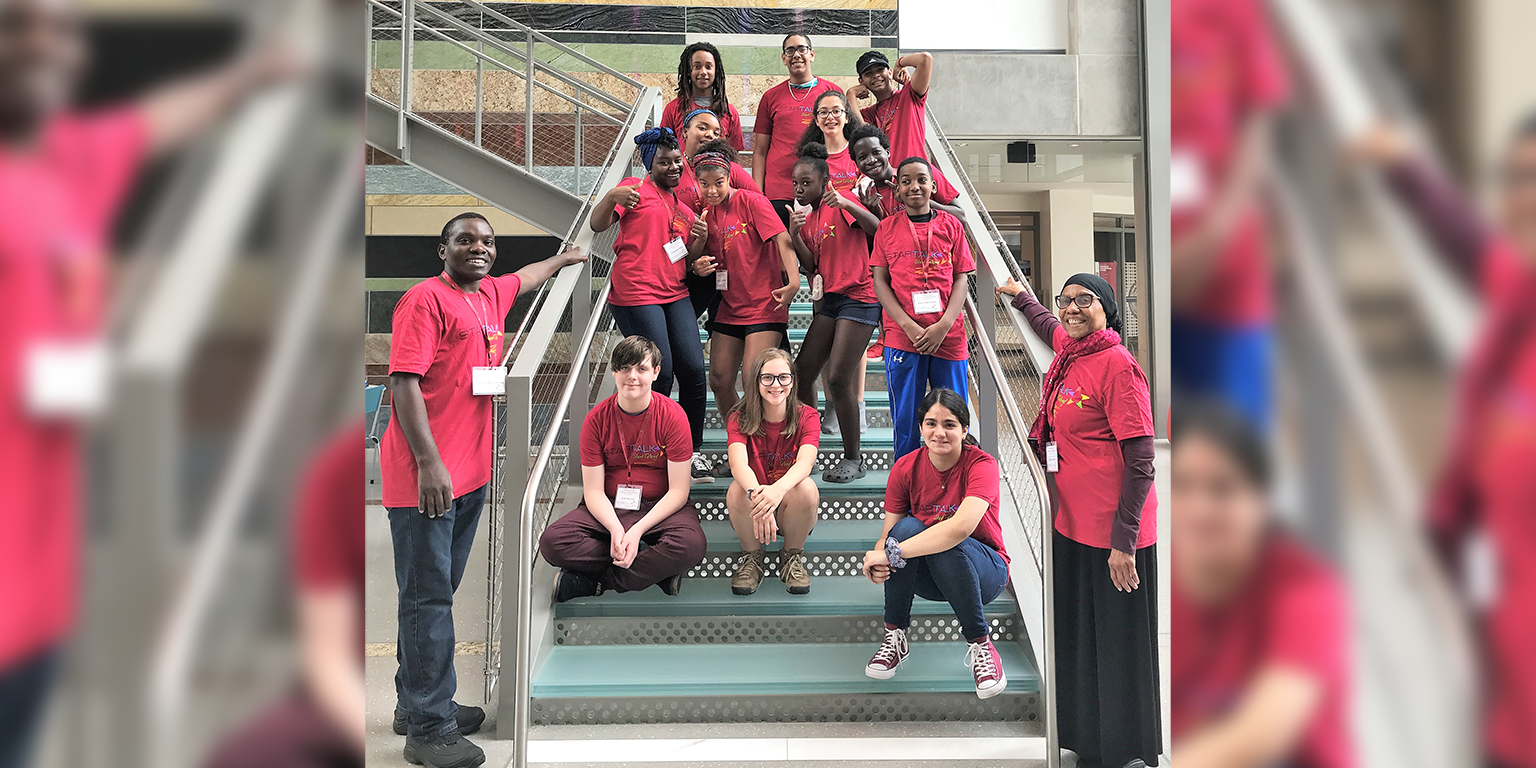Today, she is a clinical professor of Linguistics, teaches Kiswahili, coordinates the teaching of other African languages in the African Studies Program, and directs the National African Language Resource Center. In addition to second language acquisition, her research interests include cross-cultural pragmatics, web-based language instruction, and study abroad language programs. Omar previously directed the Kiswahili Flagship program for IU students, as well as the STARTALK summer Kiswahili program for middle and high school students. Through a Carnegie Diaspora Fellowship that Omar received in 2014, she collaborated with the State University of Zanzibar (SUZA) to develop MA and PhD Kiswahili Linguistics curricula, as well as teach and mentor students.
Omar received a Master of Arts in linguistics from the University of Dar Es Salaam, Tanzania, and Bachelor of English Literature and Linguistics from Kuwait University. She is a member of Chama cha Ukuzaji wa Kiswahili Duniani (CHAUKIDU), or “Association for Globalization of Kiswahili.” She has served as president of the National Council of Less Commonly Taught Languages and African Language Teachers Association, and in 2018 was awarded the A. Ronald Walton Lifetime Achievement Award from the National Council of Less Commonly Taught Languages.
Q: What inspired you to choose IU for your PhD program – and what led you to return after teaching at other institutions?
A:When I completed my MA at the University of Dar Es Salaam in 1985, I was hired by the university to teach in the Department of Foreign Languages and Linguistics. My goal was to pursue PhD studies in Linguistics, and I was brainstorming on where to apply and how I would be able to get funding. Luckily, I met a graduate student from the University of Illinois who was doing her doctoral dissertation research in Dar Es Salaam. We became friends. One day, she informed me that she received a call from the African Languages Coordinator at Indiana University, telling her that he was looking for a Kiswahili instructor who will get a fellowship to teach Kiswahili while pursuing PhD studies. I was excited about the news, and I told her I would apply for the PhD program in Linguistics. I applied and got accepted to start in August 1987! I came to the US alone first, and two years later, my family joined me.
In 2002, when I was offered a position to coordinate the teaching of African Languages at IU, I accepted it without hesitation. I returned because Bloomington is really home away from my Zanzibar home. The community of friends I made when I first came are like my extended family, and we are still in touch.
Q: How have you seen the study of Kiswahili grow and change over the years? What about this language do you love to share?
A:I have seen growth in the number of students interested in learning Kiswahili. When I first started teaching, there were only a few students at elementary, intermediate, and advanced levels. After two years, enrollment went up at the elementary level, where two sections were needed in order not to exceed 20 students in each section (the goal is to have small classes in which students will have an interactive learning experience). The following year, the intermediate level had to have two sections as well, and more instructors were hired.
When I returned to IU in 2002, I initiated the African Language Minor with language-specific track. So, students taking Kiswahili and other African languages taught at IU (Akan, Bamana, Yoruba, and Zulu) can declare an African Language Minor by adding two semesters of advanced language study and one Linguistics course.
Kiswahili is a lingua franca spoken by about 200 million speakers globally and is one of the working languages of the African Union and United Nations. In 2022, the United Nations Educational, Scientific, and Cultural Organization (UNESCO) declared July 7 as the World Kiswahili Language Day. It is the first African language to get such recognition!
Q: What tips do you have for adults trying to learn a second language?
A:Adult learners, as well as other learners, need to immerse themselves in the language. In order to do so, they can use the following tips:
- Repetition: Repeating is the key to effectively reinforcing newly learned material. It helps learners retain new vocabulary, phrases, and sentences. Using index cards and visuals will also help.
- Journaling: Keeping a daily journal helps practice the skill of writing. They can start writing according to their personal level by first using simple formulaic phrases and discrete sentences. Then, they can follow slowly with scaffolding to connecting sentences into paragraph form on different topics.
- Listening: There are many resources that learners can use to improve their listening skills. They can start listening to songs in the target language. Listening and repeating those songs can help learners acquire new vocabulary and expressions in a joyful way. They can also listen to radio programs and watch television shows, as well as YouTube videos that are in the target language. Learners will get exposed to language used by native speakers and also some cultural aspects.
- Interacting with other language speakers: Learners can communicate with other students and their instructors, as well as native speakers of the language, by participating in conversation sessions in person or virtually. Social media platforms like WhatsApp are a great communication resource to enable learners to read and write messages in the target language.
Q: Can you talk about some of the careers that African Studies students go into after graduation?
A: Students taking African Studies Program courses are well equipped to start careers in fields both nationally and internationally. ASP provides rigorous undergraduate and graduate courses, including language courses at different levels. Undergraduates can get certificates as well as minors in African Studies, African Expressive Culture, and African Languages. ASP also offers an MA in African Studies, dual/joint MAs with other area studies, and a PhD minor.
After graduation, some of the careers that ASP students go into include governmental and non-governmental organizations like the United Nations Economic Commission for Africa, World Bank, United States Agency for International Development (USAID), US-based refugee resettlement organizations, and universities in the US and abroad — among many other careers. Students who pursue post-advanced language study and participate in study abroad programs in the target language countries have great career opportunities.
Q: What do you like most about Bloomington? The IUB campus?
A: What I like most about Bloomington is that it is a small town but also globally big and full of diversity. For example, the annual Lotus World Music and Arts festival in the fall brings musicians and artists from different parts of the world, and it has a multigenerational audience — not only from Bloomington but also from other parts of Indiana and across the nation. I also like the array of international restaurants that are in downtown Bloomington and elsewhere in town. Diversity is also found at the IUB campus because of the many international students that attend IU.
IUB is also a beautiful campus! I like the Sample Gates, especially at the end of the spring semester when graduates pose for pictures wearing their graduation gear.


